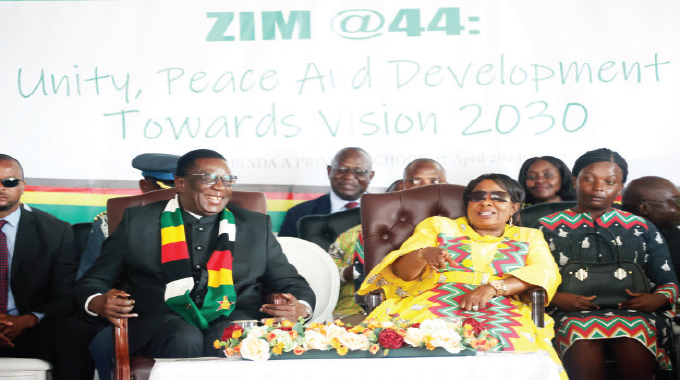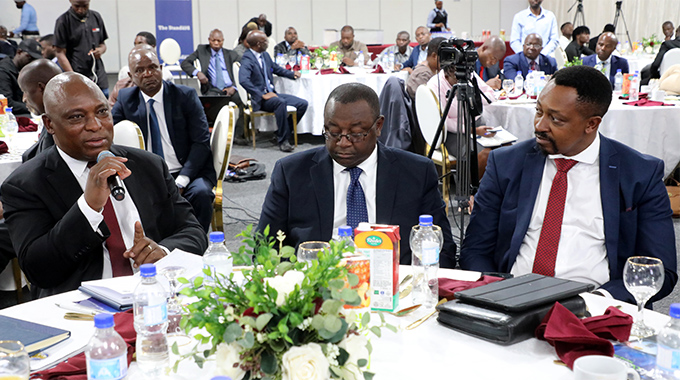Restoring our dignity through traditional leaders

Ranga Mataire, Group Political Editor
“When we gather together in the moonlit village ground it is not because of the moon. Every man can see it in his own compound. We come together because it is good for kinsmen to do so. ( . . . ) But I fear for you, young people because you do not understand how strong the bond of kinship is. You do not know what it is to speak with one voice.”
The above is a quote from Chinua Achebe’s seminal novel, Things Fall Apart, which clearly encapsulates the importance of kinsmen coming together to discuss critical issues affecting the community.
The just-ended Chiefs Council Indaba in Bulawayo typifies what Achebe yearns for in his book at a time when the community of Umuofia was experiencing serious upheavals during British colonial rule. In the case of Zimbabwe, forty-two years have passed since attaining independence but the residual effects of that colonial racist rule are still prevalent in communities.
One of the first things that colonial conquest did was to besmirch and downgrade our cultural beliefs by imposing their own ways of doing things. Our ways of living that had sustained us for thousands of years were regarded pagan.
The ultimate impact of that downgrading was to create doubts in our minds about our way of living — our traditions, our cultural norms, our values and in our traditional and spiritual leaders.
Colonisers realised that traditional leaders were critical pillars in the sustenance of our society and went about targeting spiritual leaders like Mbuya Nehanda, Mapondera, Sekuru Kaguvi and Sekuru Mkwati.

Mbuya Nehanda statue
This was all meant to demoralise and vanquish the local populace by creating doubt in the deification and invincibility of these spiritual leaders.
Any traditional leaders who refused to play ball were ostracised, dethroned or killed. The effect of this dehumanisation was to fragment the local populace and create fissures that would make it impossible for them to unite and rise against the colonisers.
It was only after Mbuya Charwe had predicted before her murder that “her bones shall rise again” that the country witnessed a new verve of nationalism that was to later lead to an armed liberation struggle.
Although not often documented, traditional leaders and spirit mediums played critical roles in the execution of the liberation struggle. Just like Mbuya Charwe during the First Chimurenga, spiritual leaders gave impetus and guidance to fighters during the Second Chimurenga.
Fast forward to 2023, we have a New Dispensation in the Second Republic, whose main thrust is not only to restore the role of traditional leaders in communities but ensure that they are the ambassadors of peace, unity and custodians of our shared values.
In the words of President Mnangagwa as he officially opened the Chiefs Conference in Bulawayo:

President Mnangagwa
“Under the Second Republic, we recognise that traditional leadership remains guarantor of our culture against contamination by practices advanced by foreigners in our country.”
The 2023 National Chiefs Council Conference must thus be seen as an attempt by the national leadership to reincarnate an egalitarian all-encompassing platform in which national issues are discussed. Chiefs are community leaders who understand the pertinent issues that affect their people. In engaging with the chiefs, the President is not only conscious of their role as the “guarantor our culture” but is also aware that the country owes its debt to our forefathers who preserved our culture and the way of life that has allowed the nation to survive.
The President’s sincerity in engaging with the traditional leaders is born out of the realisation that the current leadership needs to maintain the bond with our hallowed past, respect traditional knowledge and wisdom to “preserve our identity as African people of this country.”
Not only has the role of traditional leaders been restored in the Second Republic but the Government has continued to resuscitate chieftainships that were abolished by the Rhodesian settler regime. This is critical in nation-building as communities whose chieftainships were banished still bear the brunt of being marginalised and ostracised.
Traditional chiefs have also been bestowed with the role of dealing with issues obtaining in their communities — conflicts and crimes at the chiefs Dare, where he is assisted by surrounding headman and other community leaders. This idea of conflict resolution, which has been in existence for years, has helped in the maintenance of peace and order in communities.
However, as President Mnangagwa said, traditional leaders must also be on the forefront of tackling and dealing with issues of early marriages, teen pregnancies and alcohol and drug abuse. Traditional leaders need to work and collaborate with various Government officials in tackling various vices that have permeated the social fabric of our society. There is a need for mutual respect between Government institutions and traditional leaders for effective tackling of these vices that are threatening the country’s future.
The institution of traditional leadership is not peculiar to Zimbabwe but is prevalent in other parts of sub-Saharan Africa. While traditional authorities take various forms and shapes in many African countries, in Zimbabwe the structures and systems of the institution of leadership in Ndebele, Shona, Kalanga, Tonga and Venda ethnic communities have some remarkable differences even though similarities exist.
Generally, traditional leaders are chiefs, headmen and village heads. Village heads are physically closest to the people and have the most interactions with the citizens in their rural communities. Prior to colonisation, the institution of traditional leadership was the sole governance structure with legitimacy to govern derived from tradition and culture.
Soon after colonisation, there was dismantling of the traditional leadership structure and in some cases the traditional governance structures were replaced by colonial institutions in the advancement of their own interests and exercising firm control over black population.
The institution of traditional leadership was constantly undermined and corrupted and many of their powers were taken away. In the post-colonial period, the role of traditional leaders has now been clearly defined in the country’s Constitution and the institution is now most visible in the rural areas where it operates alongside State structures.
President Mnangagwa must be applauded for putting the role of traditional leaders on a pedestal of collective governance especially in rural areas where 67 percent of the populace resides. Traditional leaders still undertake important responsibilities. Their legitimacy, control and influence in rural areas remain widespread demonstrating the respect the communities have in their leadership.











Comments